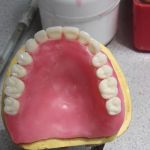Can a Dental Professional Fix a Cavity Without a Drill?
- Can a Dental Professional Fix a Cavity Without a Drill?
- Alternatives to Drilling for Cavities
- Laser Treatment for Cavities
- Benefits of No-Drill Dentistry
- The Future of Cavity Treatment
For many patients, the sound of a dental drill is synonymous with a trip to the dentist. However, advancements in dental technology have introduced innovative ways for a dental professional to fix a cavity without the use of a drill. These techniques offer a more comfortable, less invasive alternative, making dental visits less stressful for those who experience anxiety at the thought of drilling. But can a cavity really be treated without a drill? Let’s explore some of the modern options available today.
Traditionally, drilling was necessary to remove decayed tissue and prepare a cavity for a filling. However, with the emergence of modern technology, there are now alternatives that can help treat cavities without the need for drilling. Two of the most popular options are air abrasion and laser treatment. Both methods are designed to target decayed tissue while preserving the healthy tooth structure surrounding the cavity.
Laser dentistry is becoming an increasingly popular choice for patients seeking less invasive cavity treatment. The laser can remove decayed portions of the tooth with precision, without the need for the high-pitched whine of a drill. It works by using concentrated light energy to remove or reshape tooth structure in a minimally invasive manner. Not only is this method virtually painless for most patients, but it also promotes faster healing and reduces the need for anesthesia.
No-drill dentistry offers several advantages over traditional treatments. For one, patients experience less discomfort, making the dental visit more tolerable. Additionally, these procedures often require less recovery time compared to traditional fillings that require drilling and injections of anesthesia. Laser and air abrasion treatments are also less likely to cause damage to healthy tooth tissue, which can help preserve the natural integrity of the tooth for a longer period of time.
The future of cavity treatment is rapidly evolving, with new techniques and technologies emerging regularly. With the ongoing research and development in the dental field, it's possible that even more advanced treatments will soon be available that can fix cavities without the need for drills, making dental care even more accessible and less intimidating. As these technologies become more widely adopted, we may see a significant shift in the way cavities are treated, leading to improved outcomes and more comfortable dental experiences.
If you're curious about these innovative treatments, consider learning more about them through trusted dental professionals. For a more comfortable experience, you can explore various no-drill treatment options and discover the benefits of modern dentistry. To find out more, visit Dentistry Toothtruth for expert advice and advanced treatments.







 Dorfman Orthodontic Group - Bensalem5.0 (199 review)
Dorfman Orthodontic Group - Bensalem5.0 (199 review) Dental Solutions of Roxborough4.0 (219 review)
Dental Solutions of Roxborough4.0 (219 review) Suburban Dental Medicine4.0 (31 review)
Suburban Dental Medicine4.0 (31 review) Smiles Divine Dental4.0 (25 review)
Smiles Divine Dental4.0 (25 review) Icon Dental4.0 (48 review)
Icon Dental4.0 (48 review) Affordable Dentures & Implants4.0 (443 review)
Affordable Dentures & Implants4.0 (443 review) The Importance of Oral Health Education During Pregnancy for a Healthy Pregnancy
The Importance of Oral Health Education During Pregnancy for a Healthy Pregnancy Best Tips for Brushing Your Teeth Properly for Healthy Gums: Essential Techniques for Oral Health
Best Tips for Brushing Your Teeth Properly for Healthy Gums: Essential Techniques for Oral Health Why Skipping Dental Checkups Can Lead to Bigger Oral Health Problems
Why Skipping Dental Checkups Can Lead to Bigger Oral Health Problems Advantages of Porcelain Dental Restorations
Advantages of Porcelain Dental Restorations How Can Diabetes Cause Tooth and Gum Problems? Preventing and Managing Oral Health Issues
How Can Diabetes Cause Tooth and Gum Problems? Preventing and Managing Oral Health Issues Healthy Habits for Promoting Good Oral Health and Hygiene: Tips for a Healthy Smile
Healthy Habits for Promoting Good Oral Health and Hygiene: Tips for a Healthy Smile